- Home
- Kay Hooper
Adelaide, the Enchantress
Adelaide, the Enchantress Read online
Adelaide, the Enchantress is a work of fiction. Names, places, and incidents either are products of the author’s imagination or are used fictitiously. Any resemblance to actual events, locales, or persons, living or dead, is entirely coincidental.
2017 Loveswept Ebook Edition
Copyright © 1987 by Kay Hooper
All rights reserved.
Published in the United States by Loveswept, an imprint of Random House, a division of Penguin Random House LLC, New York.
LOVESWEPT is a registered trademark and the LOVESWEPT colophon is a trademark of Penguin Random House LLC.
Originally published in paperback in the United States by Bantam Books, an imprint of Random House, a division of Penguin Random House LLC, in 1987.
Ebook ISBN 9781101969359
Cover design: Diane Luger
Cover photograph: Augustino/Shutterstock
randomhousebooks.com
v4.1
ep
Contents
Cover
Title Page
Copyright
About the Delaney Dynasty…
Prologue
Chapter 1
Chapter 2
Chapter 3
Chapter 4
Chapter 5
Chapter 6
Chapter 7
Chapter 8
Chapter 9
Epilogue
Dedication
By Kay Hooper
About the Author
About the Delaney Dynasty…
When William Delaney was born in 1855, men were men and the West was wild. There were Indian troubles for settlers, but not for the Delaneys; old Shamus had cannily invested one of his sons in a marriage to the daughter of an Apache chief a year or so before young William’s birth, which quieted things considerably.
Of course, William, like his uncles before him, gleefully borrowed the Indian custom of counting “coup” and on occasion rode pell-mell through peaceful Apache camps screeching madly and attempting to touch as many braves as possible before they angrily chased him back to Killara, the Delaney homestead.
If he had run true to form, old Shamus, never one to spare the rod, would have punished his grandson severely, but he didn’t. He’d learned it was useless in dealing with William. Trees were scarce in southern Arizona, and more than one eastern-made paddle had been worn out on William’s unrepentant bottom.
William’s father, Desmond, second of Shamus’s nine sons, was killed in the Civil War in 1862, leaving seven-year-old William in the care of his mother, Anne, his grandparents, and various uncles, aunts, and cousins. If he had lived, perhaps Desmond would have controlled his son, for the boy had worshipped him.
Of those left to guard him, only his grandfather had any sort of control over the boy, and that was little enough. Old Shamus, loving his grandchildren as he had his sons, certainly tried. Since William possessed the Delaney charm and was smart enough to turn it to good effect, even Shamus found himself easing up on the boy and remarking that his misdemeanors were products only of high spirits.
The Apaches, understandably annoyed, disagreed; good Irish whiskey was called for then to ease the pain of lacerated tempers.
But as William grew, it began to require more than a friendly drink to repair the consequences of his reckless actions. William rode wild horses, searched far and wide for wild women, and discovered both cards and drink a good ten years before he should have.
At the age of sixteen William had perfected the rather dangerous art of escaping out bedroom windows, enraged husbands and loaded guns one step behind him. He had, with forethought, trained his savage mustang to stand just so beneath those windows, and husbands in jealous pursuit found themselves choking on dust and listening to hearty laughter carried away by fleet hooves.
By the time he was eighteen William had searched out and conquered women within a two-hundred-mile radius of Killara. Indeed, betting in saloons held that a pair of his boots could be found under the bed of every woman under thirty except those William was kin to.
And since old Shamus was no fool, he was well aware of why his grandson often arrived home sketchily attired in only his trousers. Shamus could forgive the womanizing, merely remarking somewhat irritably that he could have raised all nine of his sons and shod them handsomely in the boots William had left behind him.
However, men were men then, and the West was still somewhat wild. And, inevitably, William was a bit lazy in leaving a warm bed one night. The jealous husband had burst in prepared, gun in hand and temper raging. William wasted no time with his pants, but grabbed his own gun instead, and when he left that window there was a badly wounded man behind him.
William might have stood his trial; he might even have been acquitted. But he was a gambler, and he knew the odds: at least half the men on any jury would be men he had wronged. So he climbed aboard his bad-tempered mustang and headed west.
He took with him little in the way of material things, confident of his luck, but he did “borrow” a single treasure from the Delaney family coffers. As treasures go, the necklace was worth little. It consisted of three silver medallions, each bearing a turquoise stone. Perhaps William was thinking of his grandfather’s lucky number; in any event, he took the necklace.
On the Barbary Coast he found men even more dangerous than those he had left behind him; though there were warm beds aplenty, there were also eager guns and short tempers. William, ever ready to conquer virgin territory, cocked his eye still farther west and boarded a ship.
He wound up, somewhat to his own surprise, in Australia, and liked it enough to remain for a while. He worked when he had to and gambled when he could, arriving at last on a sheep station—where he hired on happily after a glance at the boss’s very pretty daughter.
It was in 1877 when William went to work there, and he lost no time in leaving yet another pair of boots under yet another bed. But William had reckoned without Matthew Devlin, the quiet man whose only child was his daughter, Mary. William went to his wedding as lighthearted as always, unperturbed by the shotgun that had guided his steps to the altar.
William remained for a short time, long enough to tell his bride all about his family in Arizona, about Killara. Truly of Shamus’s blood, he wove a splendid story about the relatives half a world away, gifting them with even more wealth and power than what was actually theirs at the time. Then, being William, he cheerfully abandoned his bride and sailed for home, trusting of forgiveness behind him, welcome before him, and having no idea that he had left in Australia something more than a pair of boots and an old necklace.
William found, at Killara, that there was indeed welcome, and that past misdeeds, if not forgotten, were at least viewed as dim and unimportant. He returned to the bosom of his family and never thought to mention the small matter of a wife left behind in Australia’s outback.
Unfortunately, none of William’s adventures had taught him to curb his recklessness, and he lost no time in reminding people of why he had left Arizona years before. He went his charming way from bad to worse, until even his loving grandfather freely predicted that he would end by getting his neck stretched.
Which, regrettably, is exactly how things turned out.
Mary Delaney was not surprised by William’s abandonment; she had loved him and, perhaps remarkably, understood him. She would have as soon attempted to chain the wind as tie William to her side. And she was a strong woman, a proud woman. So she bore her son, Charles, and raised him on the station alone after her father died. She told him often the story of Killara and the Arizona Delaneys, that and a necklace being the only birthright William had left his son.
In his turn, Charles married and fathered a son, passing on the tale
s of Killara—which was, in reality, by that time, all that William had described and more.
As with many families, the Australian branch of the Delaney clan could boast at least one mystery, and William’s son, Charles, was responsible for theirs. At some point in his young life, he attempted to mine gems, and, having barely fathered his own son, he was murdered because of a fabulous gem it was believed he had found. His killers were never caught and the gem, if it existed, vanished.
By the time Spencer Delaney, William’s great-grandson, was born in 1935, Killara had become a legend; with news spreading worldwide overnight because of advanced technology, hard facts upheld the legend.
And, pride being a strong Delaney trait, Spencer did not turn to his wealthy American relations when he found himself in financial trouble. Instead, he sold off the larger part of the station to a neighboring station, requiring only that his family be given a two-month option to repurchase the land if it came up for resale.
Killaroo, as the station had been renamed by Mary, was small, and the sale of the land was only temporarily helpful to the family. Spencer, realizing too late what he had given up, worked his fingers to the bone to see his family prosper so the land could be restored to them. As the years passed, it became his obsession. He suffered two minor heart attacks and, ignoring warnings by his doctor that a third would likely kill him, continued to work and scheme to get his land back.
Since Delaneys tended to sire male children, it was somewhat surprising that Spencer had fathered three girls. And though Spencer may well have felt the lack of a son, he loved his girls and wanted the best for them. Sydney, Matilda, and Adelaide, however, wanted their father healthy and free from worry.
And so, when the land once belonging to them came up for sale, the girls resolved to raise the staggering price. They knew, of course, of their American cousins, but none of them even suggested that those strangers be applied to.
Each had a scheme. Each had a talent, or a means to make money quickly. And each was driven, as never before in her life, to attain a very specific goal. They were fighting for their birthright, but, even more, they were fighting for their father’s life.
They had two months. Sixty days to do the impossible. And if they knew it was impossible, the knowledge was unimportant to them. They were Delaneys, and it was bred into them to know that even the impossible road was traveled one step at a time.
And so they began.
Prologue
Oh, hell, I’ll have to break my promise.
It was an unhappy thought, and weighed heavily on Addie’s already low spirits. Her father had always said that the most dishonorable thing anyone could do was to break a promise, and now she would have to break her promise to him.
No more professional racing, he’d said, it was too dangerous. And she had promised. No more racing, except on Resolute.
But now she had to. And she thought more of the cruel demands she would be forced to place on Resolute than of the equally cruel demands on herself. She could race Resolute perhaps four times in two months—if he remained sound, and if the handicappers did not pile weight on him in their efforts to achieve fairness. She had no doubt he’d win, except perhaps for the Melbourne Cup, which was always uncertain.
Still, even if they won the Cup, it would not be enough. She’d have to race constantly herself, take every mount offered her and work to win every race; her percentage of the winnings would make up the difference. It had to. And when she thought of that, thought of race after race on good, bad, and indifferent horses, thought of crowds and reporters…
Addie gazed through the kitchen window, watching the lean middle-aged man working to repair the old tractor. There were, Addie thought painfully, too many lines of care on his face. There was too much strain, and in his eyes was too much despairing anxiety.
And as she looked out at her father now, courage and determination returned. Whatever it took, she would find in herself. Whatever was necessary, she would do. Even if it meant breaking a promise.
“So we’re agreed?” Sydney asked.
Addie looked at her sisters, seeing them as two parts of herself as well as separate beings. Sydney older, Manda younger; the one dark and controlled, the other bright and effervescent. Addie had always felt close to her sisters, but never as close as she did at this moment.
“Right. We’ve got to keep our individual goals in mind, but if one of us needs help, the other two will come running,” Manda said. “We’ve got to remember this is a joint project. We all must succeed.”
Addie nodded in agreement. “But what about Dad? It’s important we keep this a secret. There’s potential danger in all our plans, and we can’t worry him. You two have it a hell of a lot easier than I do. He’s bound to hear what I’m doing.” She almost shuddered, thinking about it. The eyes watching her. It wouldn’t bother her during a race, but afterward…Reporters and photographers and a kind of notoriety that made her extremely uncomfortable.
“Do the best you can,” Sydney said. “And if you need help, ring us.”
Addie looked at her older sister, the sister who’d gotten a large measure of the Italian blood they shared, and who was quiet and still and always reminded Addie of a madonna. All her passions were caged in outward serenity; and of course she was worried and anxious, but she’d never let it show. Not Sydney. Lovely, graceful Sydney, who could fly, Addie thought, if she’d only let herself.
Addie pulled her thoughts back to planning the next few weeks. “I’ll be on the move, so I’ll check in often. And since I’ll be closest to home, I’ll keep an eye on Dad.”
“Good,” Sydney said. “Be sure and let us know if anything changes with him.”
In the momentary silence Addie thought again of the coming weeks, and shivered. Each of them alone, fighting the clock and the odds. Could they do it?
Manda drew a deep, shaky breath. “Lord, I’m scared. What if we blow it?”
Addie looked at her in surprise. Manda—scared? Their quicksilver bird with her exotic plumage, always rushing to get somewhere because she’d never been there before?
Then Addie understood. Warm, generous Manda, who loved their father and who had realized, probably for the first time in her life, that an adventure could have an ending far worse than simple failure could ever be.
“I’m scared too.” Addie returned Manda’s quick, grateful smile, wondering if her younger sister knew just how strong she really was. Perhaps these next weeks would show her.
“We all are,” Sydney said. She reached for her sisters’ hands and clasped each one tightly. “But we won’t fail because we can’t.” She smiled with an effort. “This isn’t another one of Manda’s trips to the sea. This dream has to become a reality.”
Addie felt the tie between them that was more than touch, more than blood, and her own determination hardened.
They had this bond, and they each wanted something. Something desperately important to all of them. And Addie knew they would all push themselves to their limits to reach that goal.
And suddenly, Addie knew they’d do it. Whatever chances they took, whatever risks they ran, this time they would make it to the sea.
Chapter 1
He probably wouldn’t have noticed them, except for the koala. It wasn’t, after all, unusual to see a horse at a racetrack, or even a girl walking beside a horse. And it wasn’t that unusual to see a koala in Australia. But he’d never seen one with four leather gloves covering its paws and riding a horse.
He didn’t know much about koalas, but this one seemed a fair example of the species. It looked absurdly cuddly, with tufted ears and a round little body, button eyes, and a large black nose. It was the middle of the day, and the creature looked sleepy, but its little gloved paws were firmly anchored in the horse’s gray mane.
Shane Marston turned his astonished eyes from the koala to the horse. Technically a gray horse, the young stallion was actually pure white except for a gray mane and tail; he was long and lean, every
clean line of him shouting of generations of racing blood. He walked quietly, obediently, beside the girl holding his lead rope. He wore no blanket or leg bandages, and seemed not to mind the koala clinging to his back.
The girl stopped just inside the wide barn hall and dropped the lead rope, and while the horse stood calmly she held out her arm toward the koala, calling, “Sebastian.”
The little creature reached a gloved paw toward her, not completely releasing the horse’s mane until he could grasp her arm. Then he left the horse in a smooth transfer to the girl’s back, his limbs firmly around her neck.
She picked up a brush and began grooming the stallion, apparently entirely comfortable with the koala on her back.
Shane stood very still, gazing at the girl and feeling the shock of her voice still echoing in his mind. It was the sweetest, most gentle voice he had ever heard, and it touched something inside him, something that had never been touched before. His throat felt tight and his heart pounded, and he was bewildered because suddenly he couldn’t breathe very well.
He realized it was odd for him to have reacted so strongly to a single word. He listened intently then so he could catch her softly murmured words to the horse, and every sound she uttered seemed to run along his nerve endings like the memory of a song heard once and never forgotten.
He backed off a little until he could no longer hear her, needing to come to terms with his own rioting emotions. But he could only gaze at her, stunned, unable to think at all.
She was not thin, but she was small and looked amazingly fragile. Her skin was very fair, almost translucent. The only color she could boast of was the vibrant red of her short hair; and though that hair was a badge of passion and temper, in her face was reflected only gentleness and calm.
She was not, he realized on some uncaring level of himself, a beautiful young woman. Her mouth was too wide for beauty, her eyes too large. Yet that tender mouth would always draw the gaze of a man, and those dark eyes would haunt his dreams.

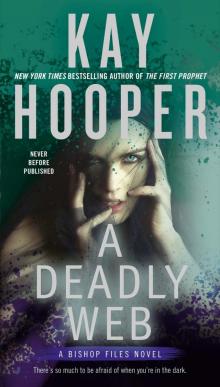 A Deadly Web
A Deadly Web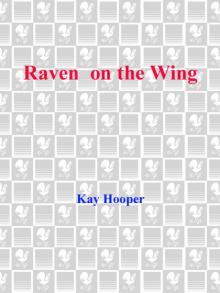 Raven on the Wing
Raven on the Wing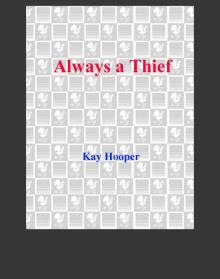 Always a Thief
Always a Thief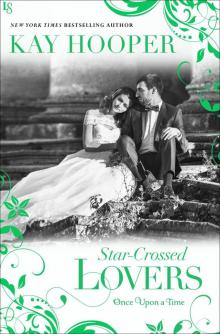 Star-Crossed Lovers
Star-Crossed Lovers Blood Dreams
Blood Dreams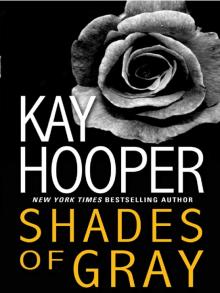 Shades of Gray
Shades of Gray Rebel Waltz
Rebel Waltz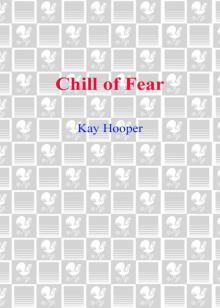 Chill of Fear
Chill of Fear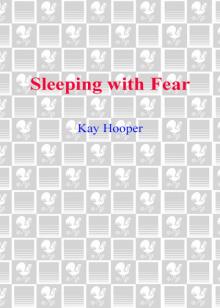 Sleeping With Fear
Sleeping With Fear After Caroline
After Caroline Time After Time
Time After Time Haunting Rachel
Haunting Rachel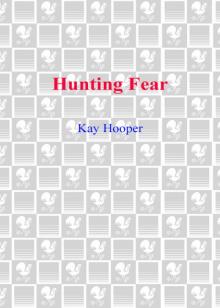 Hunting Fear
Hunting Fear Out of the Shadows
Out of the Shadows Whisper of Evil
Whisper of Evil Blood Sins
Blood Sins Hiding in the Shadows
Hiding in the Shadows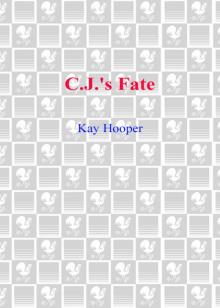 C.J.'s Fate C.J.'s Fate C.J.'s Fate
C.J.'s Fate C.J.'s Fate C.J.'s Fate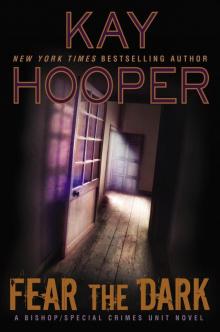 Fear the Dark
Fear the Dark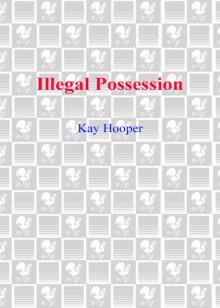 Illegal Possession
Illegal Possession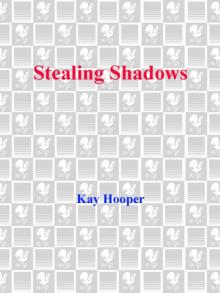 Stealing Shadows
Stealing Shadows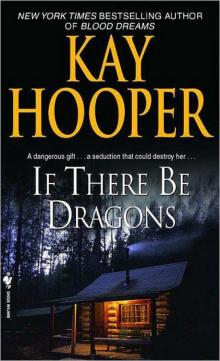 If There Be Dragons
If There Be Dragons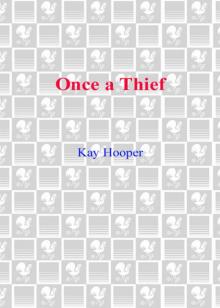 Once a Thief
Once a Thief In Serena's Web
In Serena's Web On Wings of Magic on Wings of Magic
On Wings of Magic on Wings of Magic Hostage
Hostage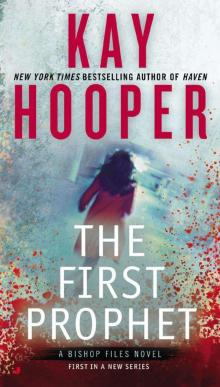 The First Prophet
The First Prophet Through the Looking Glass
Through the Looking Glass Golden Flames
Golden Flames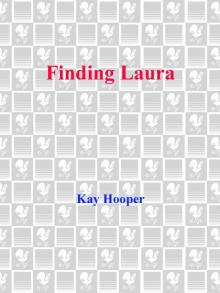 Finding Laura
Finding Laura Haven
Haven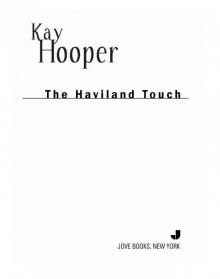 The Haviland Touch
The Haviland Touch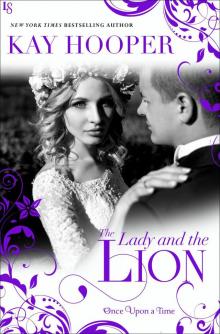 The Lady and the Lion
The Lady and the Lion Haunted
Haunted Velvet Ligntning
Velvet Ligntning Blood Ties
Blood Ties Adelaide, the Enchantress
Adelaide, the Enchantress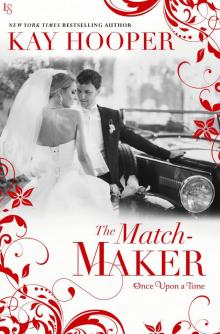 The Matchmaker
The Matchmaker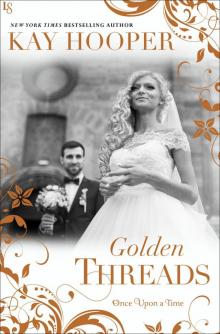 Golden Threads
Golden Threads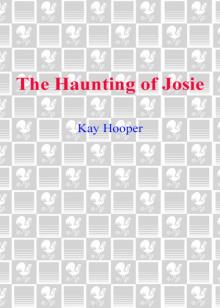 The Haunting of Josie
The Haunting of Josie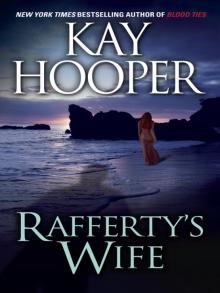 Rafferty's Wife
Rafferty's Wife Amanda
Amanda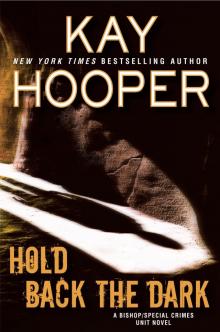 Hold Back the Dark
Hold Back the Dark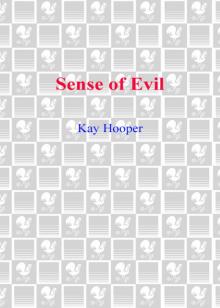 Sense of Evil
Sense of Evil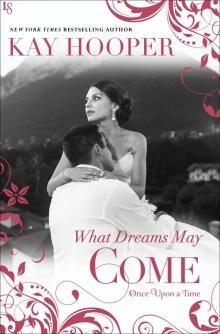 What Dreams May Come
What Dreams May Come Larger Than Life
Larger Than Life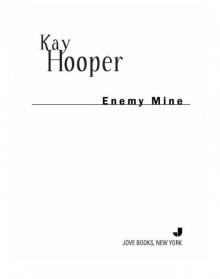 Enemy Mine
Enemy Mine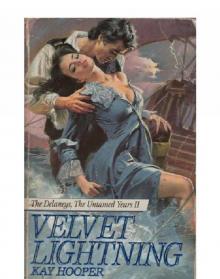 Velvet Lightning
Velvet Lightning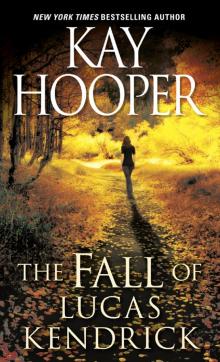 The Fall of Lucas Kendrick
The Fall of Lucas Kendrick Aces High
Aces High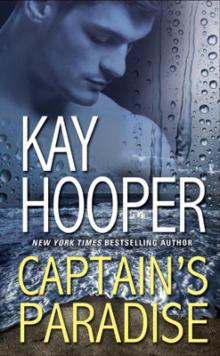 Captain's Paradise: A Novel
Captain's Paradise: A Novel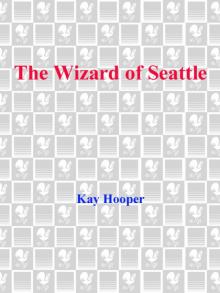 The Wizard of Seattle
The Wizard of Seattle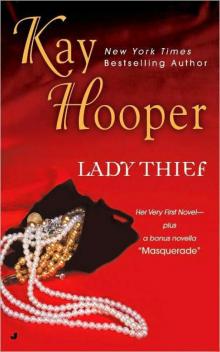 Lady Thief
Lady Thief Summer of the Unicorn
Summer of the Unicorn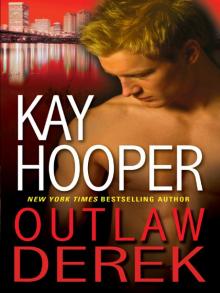 Outlaw Derek
Outlaw Derek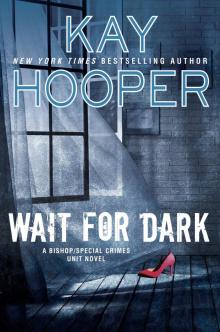 Wait for Dark
Wait for Dark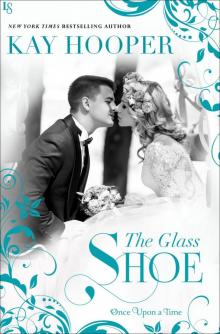 The Glass Shoe
The Glass Shoe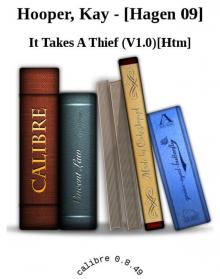 It Takes a Thief
It Takes a Thief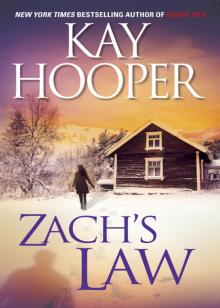 Zach's Law
Zach's Law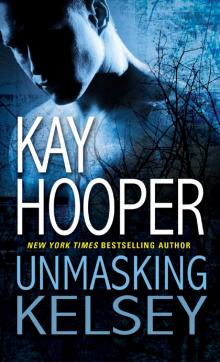 Unmasking Kelsey
Unmasking Kelsey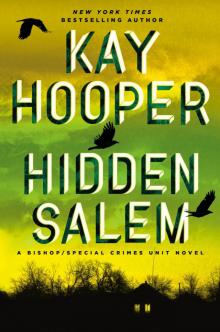 Hidden Salem
Hidden Salem